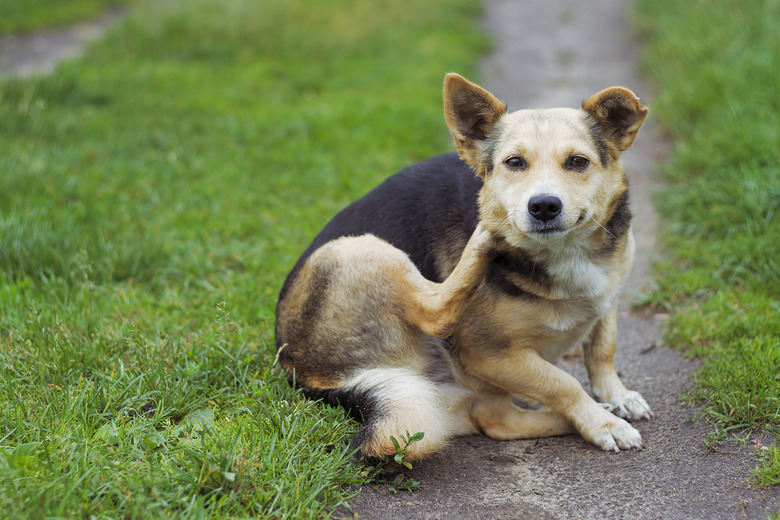What Oils Kill Fleas?
If you've ever been faced with removing fleas from your dog, you're likely familiar with the usual courses of treatment: drops, chewable tablets, collars, shampoos, or dips. For anyone looking to take the natural route, or for those who simply can't afford to purchase traditional flea medication, home remedies are available in the form of oils. If you're seeking an alternative therapy to treat fleas on your canine, it's important to understand which oils for fleas on dogs to use and how to administer them safely.
Why use oil?
Why use oil?
With all of the flea and tick treatments and preventative medicines out there, why would someone opt to use essential oils for fleas? For starters, it's a natural solution to a problem that's commonly treated with chemicals, which often makes them a cruelty-free option that's easy to use in a pinch if you don't have medication on hand. Additionally, it's affordable. When compared to most traditional flea medication, essential oils cost only a small fraction of the price, which can lead to big savings for anyone with flea-prone dogs or multiple dogs in need of flea treatments.
Does it work?
Does it work?
Sure, using oils to treat fleas is natural and by comparison cheap, but do they work? That all depends on the oils you use, the severity of the flea infestation, and your dog. Before you begin looking into the right oils, it's important to consider safety when using oils to treat fleas on dogs. As the American Kennel Club warns, some essential oils can be toxic for dogs when administered incorrectly and can lead to additional adverse reactions, from skin and stomach irritation to liver disease and more. Furthermore, because there is no data to support that oils can prevent or treat fleas, using them can leave your dog vulnerable to flea- and tick-borne diseases, so it's always important to consult a veterinarian in your area to see if oils may be right for your dog.
Finally, if you are going to use oils to treat fleas on your dog, it's important that you dilute them with a carrier oil before applying any onto your dog's skin. Essential oils absorb into the skin quickly, so you'll want to be sure they are diluted to a safe percentage. You will also need to prevent your dog from ingesting essential oils and only apply them where your dog can't lick them off, like behind the shoulders.
Essential oils for fleas
Essential oils for fleas
If you're going to go the natural route to treat fleas, there are a couple of ways to use different oils. One way is to use essential oils for fleas. As Dr. Judy Morgan reported for Fox News, essential oils that perform well on fleas include lavender (which won't kill fleas but can repel them), peppermint, lemongrass, rose geranium, and cedar oil. The American Kennel Club, however, lists the use of citrus oils and peppermint oil for fleas as unadvisable, as they can be especially toxic to dogs. Dvm360 goes on to list tea tree, pennyroyal, and orange oils as dangerous when they aren't diluted properly, so if you are going to explore any of these essential oil options, always be sure to consult your veterinarian first. If she gives you the go ahead, remember to dilute the oil in a carrier oil like almond or olive oil before applying it to your dog's skin.
Other oils to use
Other oils to use
Another way to use oils involves fatty oils, like coconut oil. Fox News adds that the lauric acid found within coconut oil can work to repel and kill fleas when applied correctly and is considered to be a safer option than essential oils in most cases. To use coconut oil to kill fleas, simply measure one teaspoon per 20 pounds of your pet's body weight. Then, rub it between your hands to warm it up until it softens to a spreadable consistency before applying it onto your dog's coat.
How to remove oil
How to remove oil
If your dog has come in contact with toxic oil or he is having an adverse reaction to essential oils, wash the area with water and dish soap, which will help break down the oil. If your pet is displaying symptoms of depression or cannot get up to move, bring him to his veterinarian right away.
Always check with your veterinarian before changing your pet's diet, medication, or physical activity routines. This information is not a substitute for a vet's opinion.
